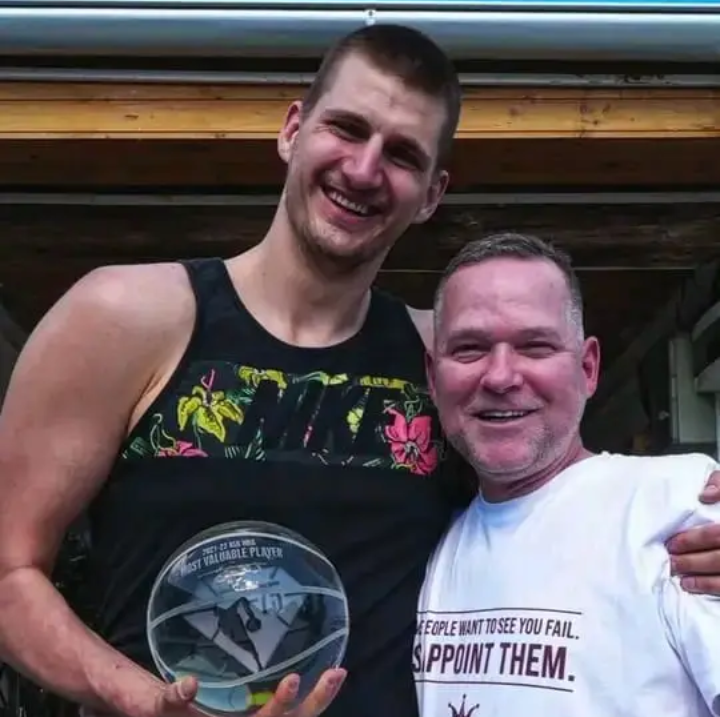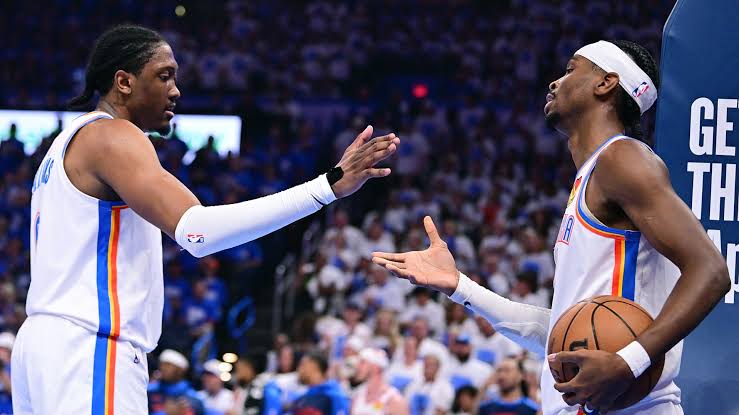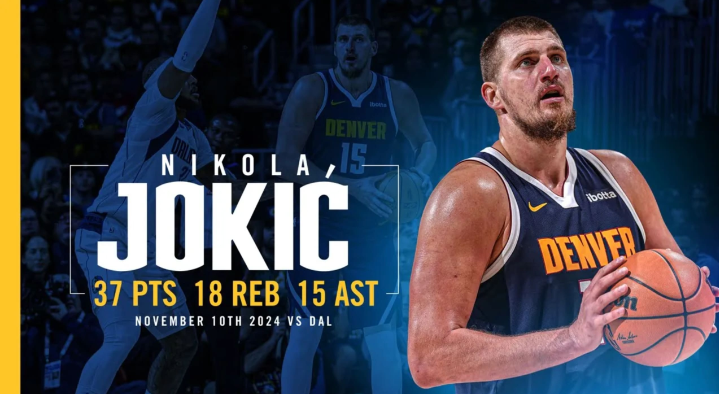Nikola Jokić’s Olympic Dilemma: Balancing Greatness with Longevity…
Denver Nuggets head coach Michael Malone recently raised a crucial question regarding the future of his star player Nikola Jokić: should the Serbian superstar participate in the 2024 Paris Olympics? Malone’s concern isn’t born out of selfishness or a lack of appreciation for international basketball. Instead, it stems from the staggering workload Jokić has shouldered over the past several years and the potential long-term consequences for the reigning NBA Finals MVP.
Jokić is not just the centerpiece of the Nuggets’ offense; he is their engine. His unique blend of size, skill, and basketball IQ has redefined what is expected from a modern center. But greatness comes at a cost. Malone noted that Jokić has played the second-most minutes in the NBA over the past five to six years, trailing only Boston Celtics star Jayson Tatum. For a 6’11” big man weighing 284 pounds, that kind of mileage can take a toll, raising questions about how much more his body can endure.
As the Paris Olympics approach, Jokić faces a decision that goes beyond national pride. Should he risk further wear and tear on his body for a chance to bring glory to Serbia, or should he prioritize his health and focus on maintaining his dominance in the NBA?
A Heavy Workload
Since entering the league in 2015, Jokić has been an ironman in a sport where durability is increasingly rare. Over the last five seasons, he has averaged 75 games per year, excluding the pandemic-shortened 2020 season. His role in Denver’s offense is unparalleled; he’s not only the primary scorer but also the playmaker and emotional leader.
In the 2022-23 season, Jokić played 2,470 regular-season minutes, followed by an additional 754 in the postseason. His minutes were packed with physicality posting up, rebounding, and orchestrating the offense in a league that is faster and more demanding than ever before. Unlike guards and wings, big men absorb more physical punishment due to their constant battles in the paint.
Adding to the strain is Jokić’s commitment to international competition. In September 2023, he led Serbia to a silver medal at the FIBA World Cup, playing a pivotal role in their deep tournament run. International play, while rewarding, offers little respite for NBA stars. The physical demands of summer tournaments often overlap with the critical offseason period players need for recovery and preparation.
The Olympics: A Double-Edged Sword
For Jokić, representing Serbia is more than a professional obligation; it’s a deep-rooted honor. He has spoken passionately about his pride in wearing the national jersey and the responsibility he feels to inspire the next generation of Serbian athletes. The Paris Olympics, where Serbia will face the world’s best teams, represent a rare opportunity to secure a gold medal something that would cement Jokić’s legacy both at home and abroad.
However, the Olympics come at a price. The tournament takes place just weeks before NBA training camps open, leaving little time for rest and recovery. For Jokić, who has already logged significant minutes during the NBA season, this creates a precarious situation. Overloading his body could lead to fatigue, injuries, or a decline in performance during the subsequent NBA season.
The case of Pau Gasol serves as a cautionary tale. The Spanish legend enjoyed a stellar NBA career but often returned from international tournaments nursing injuries or exhaustion, which eventually contributed to a premature decline. Jokić, at age 29, is in the prime of his career, but big men historically have shorter windows of peak performance due to the physical strain on their joints and muscles.
The Nuggets’ Perspective
From the Denver Nuggets’ standpoint, Jokić’s health is non-negotiable. The franchise is coming off its first NBA championship in history, with Jokić leading the way as a dominant force on both ends of the court. The team’s hopes of repeating as champions hinge on his availability and effectiveness.
Michael Malone’s comments underscore the delicate balance between supporting Jokić’s passion for representing Serbia and ensuring he’s ready for the grueling NBA season. The Nuggets, like many NBA teams, have invested heavily in player performance and recovery programs, but these efforts can only go so far if a player doesn’t allow his body adequate time to heal.
The Mental Component
Beyond the physical toll, there’s a mental aspect to consider. Jokić’s commitment to both the NBA and international basketball leaves him with little time to recharge mentally. While he is famously stoic and unflappable on the court, even the most composed athletes can face burnout when the demands of their profession leave no room for rest.
Jokić’s unique offseason routine—spending time with family, caring for his horses, and retreating to his quiet hometown of Sombor—has been key to maintaining his mental well-being. Skipping the Olympics might afford him the opportunity to enjoy a rare full summer of rest and personal time, which could be just as beneficial as physical recovery.
The Bigger Picture
Jokić’s decision has implications that extend beyond his career. It speaks to the broader issue of player workload in professional sports. The NBA has already made adjustments, such as reducing back-to-back games and limiting travel, to prioritize player health. Still, the increasing overlap between international tournaments and the NBA calendar creates additional challenges for stars like Jokić, who feel compelled to excel on both stages.
Ultimately, the decision to play in the Paris Olympics will be Jokić’s alone. It’s a choice between honoring his national team commitments and safeguarding his long-term health and NBA career. While there’s no easy answer, his decision will set a precedent for how elite players balance the demands of club and country.
Conclusion
As the Paris Olympics draw nearer, all eyes will be on Nikola Jokić. The Serbian superstar finds himself at a crossroads, with the weight of two nations Serbia and the Denver Nuggets on his shoulders. Michael Malone’s comments serve as a timely reminder of the sacrifices Jokić has already made and the fine line he must walk to preserve his greatness.
For Jokić, the question isn’t just about the next summer; it’s about the next decade. Can he continue to redefine the game of basketball while managing the wear and tear on his body? Or will the pursuit of short-term glory come at the expense of long-term success?
No matter what he decides, Jokić’s legacy as one of the game’s most extraordinary talents is secure. But how he manages the next phase of his career could determine whether he is remembered as a transcendent player who sustained his greatness or one whose brilliance burned too bright, too fast.


